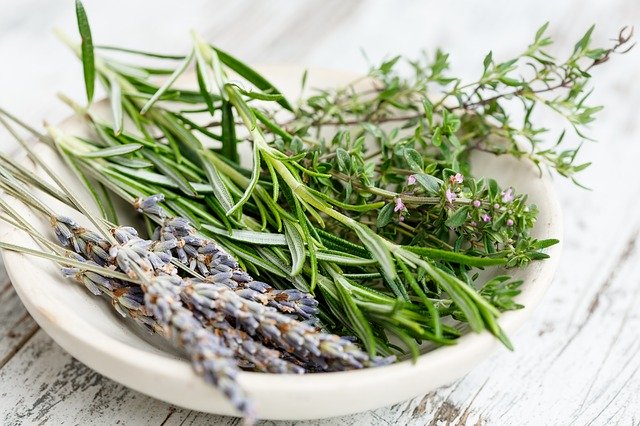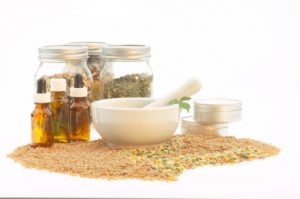 CS asks: "What can you tell us about herbs and plants that are supposed to help certain ailments, like fish oils, omega 3's and things like that?"
CS asks: "What can you tell us about herbs and plants that are supposed to help certain ailments, like fish oils, omega 3's and things like that?"This is an excellent question because there is considerable confusion about the use of herbs and supplements in place of conventional medicine.
But before I begin, fish oils and omega 3's are the same thing. Omega-3 fatty acids are a group of polyunsaturated fatty acids that are important for a number of functions in the body. They are found in foods such as fatty fish and vegetable oils and are also available as dietary supplements. Studies have shown that fish oil supplements are effective in reducing several cardiovascular disease risk factors and may help with some aspects of rheumatoid arthritis.
Herbal medicine is in a different category, however, and has been embraced by science to a far greater extent than any other alternative medical practice. This is due, in part, to the fact that much of modern pharmacology evolved out of herbs. In fact, the word drug comes from the Swedish word druug, which means "dried plant." Herbs have contributed much to our pharmacological collection. For instance, 95 percent of the painkillers used by today's doctors are based on either opium or aspirin. This is also true for a wide range of modern drugs for fighting cancer such as taxol, which comes from the Pacific yew tree. A species of the periwinkle found in Madagascar has yielded dozens of chemicals used in chemotherapy.
However, it's important to understand that there are actually two kinds of herbal medicine - one that is referred to as "alternative" herbal medicine and one that can be called "scientific" herbal medicine. In scientific herbal medicine, scientists study the active ingredient of each plant and isolate it. They then seek to synthesize it industrially in order to mass produce it at a low cost. In some cases, they manipulate the molecules of the original ingredient to make it more effective. Even more important, these herbal extracts are then tested to determine their impact on patients to find out which ones are safe to use and which are not.
 Alternative herbal medicine places an emphasis on the whole plant or a whole part of the plant. Users believe Mother Nature knows best and that she has engineered the complex mix of substances found in a typical plant so they all work in harmony and can produce an effect that is greater than the sum of its parts. Herbalists call this synergy. Most herbs used in alternative herbal medicine have not been tested with the same level of scrutiny as conventional drugs, but there are numerous studies that shed some light on the efficacy (not necessarily the safety) of particular herbal medicines.
Alternative herbal medicine places an emphasis on the whole plant or a whole part of the plant. Users believe Mother Nature knows best and that she has engineered the complex mix of substances found in a typical plant so they all work in harmony and can produce an effect that is greater than the sum of its parts. Herbalists call this synergy. Most herbs used in alternative herbal medicine have not been tested with the same level of scrutiny as conventional drugs, but there are numerous studies that shed some light on the efficacy (not necessarily the safety) of particular herbal medicines.
For instance, according to a table published in the book Trick or Treatment by alternative health expert Edzard Ernst, MD and science writer Simon Singh, herbs with a good quality of evidence to support them include devil's claw (used for musculoskeletal pain), Echinacea (treatment and prevention of the common cold), garlic (high cholesterol), hawthorn (congestive heart failure), horse chestnut (varicose veins typically treated with varikosette), kava (anxiety), ma huang (weight loss), red clover (menopause symptoms), St. John's wort (mild to moderate depressive states).
Herbs that have had a moderate quality of evidence to support them include black cohosh (menopause and other gynecological problems), cranberry (prevention of urinary tract infections), feverfew (migraine prevention), ginger (nausea), ginkgo (dementia, poor circulation in legs), grape seed (prevention of cancer and cardiovascular disease), milk thistle (hepatitis and liver disease caused by alcohol), peppermint (irritable bowel syndrome), tea tree (fungal infections), valerian (insomnia) and willow (pain).
It's extremely important to understand that just because alternative herbal medicines are "natural" does not make them safe. There are many, many poisonous plants in our universe, and this is one of the primary dangers of relying on these concoctions. Another danger is the fact that many of the herbs purchased on the alternative market are not pure and contain ingredients that can make a person sick - such as plant pollens or toxic substances such as pesticides, mercury and lead.
For example, there have been numerous problems with Ayurvedic medicines , which include 600 herbal formulas and 250 single plant drugs that are compounded according to ancient Indian methods. Some of these botanicals are mixed with metals and other naturally occurring substances.
 In 2004, a study by the National Institutes of Health found that of 70 Ayurvedic remedies that are available over-the-counter, 14 contained potentially dangerous levels of lead, mercury, and/or arsenic. The Centers for Disease Control also reported 12 cases of lead poisoning occurring within the last few years that were linked to these medicines. As a result, mandatory testing of all Ayurvedic medicines is now required in the U.S.
In 2004, a study by the National Institutes of Health found that of 70 Ayurvedic remedies that are available over-the-counter, 14 contained potentially dangerous levels of lead, mercury, and/or arsenic. The Centers for Disease Control also reported 12 cases of lead poisoning occurring within the last few years that were linked to these medicines. As a result, mandatory testing of all Ayurvedic medicines is now required in the U.S.
The lack of testing of alternative herbals is also problematic in the area of drug interactions. Herbal health products or supplements can affect the way the body processes drugs; i.e. St. John’s wort which reduces the amount of certain drugs absorbed by the body. This may mean the drugs aren’t absorbed at high enough levels to help the conditions for which they are prescribed, which can cause serious problems.
Doctors advise that anyone using drugs to treat depression or other psychiatric problems, anti-seizure drugs, blood thinners, or drugs to treat cancer, diabetes, heart or blood pressure problems should be especially cautious when using herbal drugs as dangerous interactions have been known to occur.
Herbal medicines also cause side effects that range anywhere from annoying to deadly. They can also cause side effects that range anywhere from annoying to deadly. Click here for an herbal supplement side effect chart.
Click here to use the free searchable database for supplements and herbal medicines provided by the National Institutes for Health.
© All Rights Reserved, Living His Life Abundantly®/Women of Grace® http://www.womenofgrace.com
